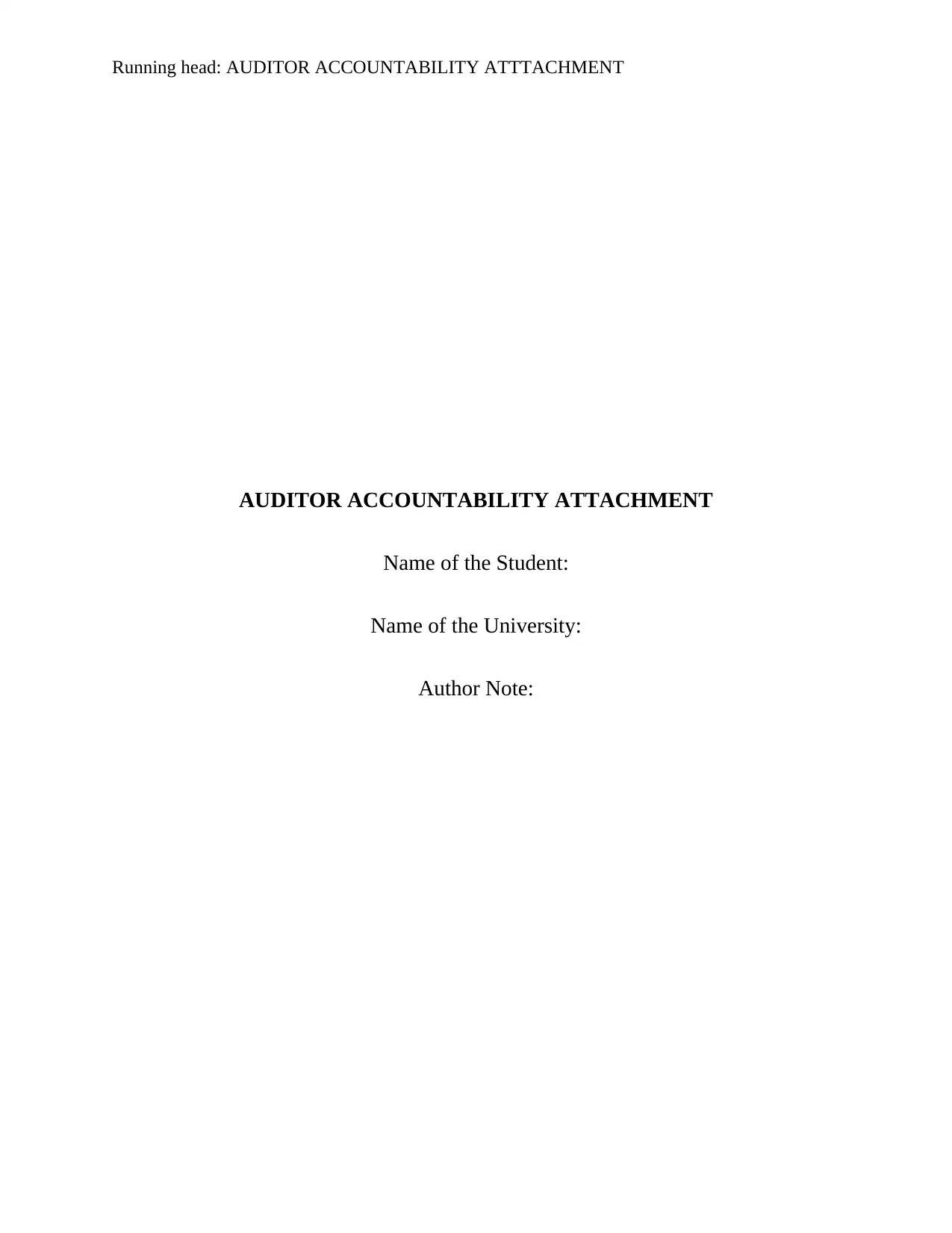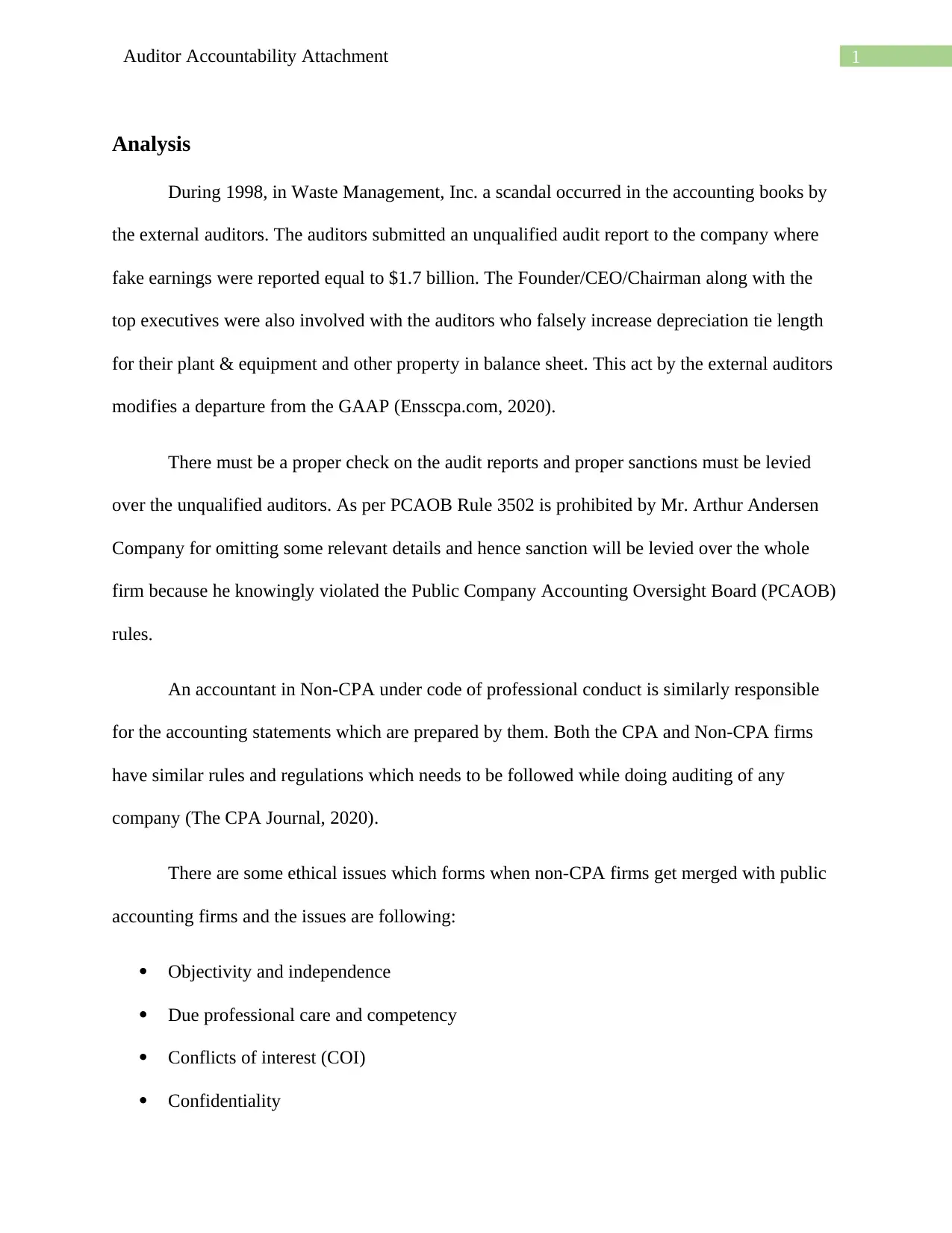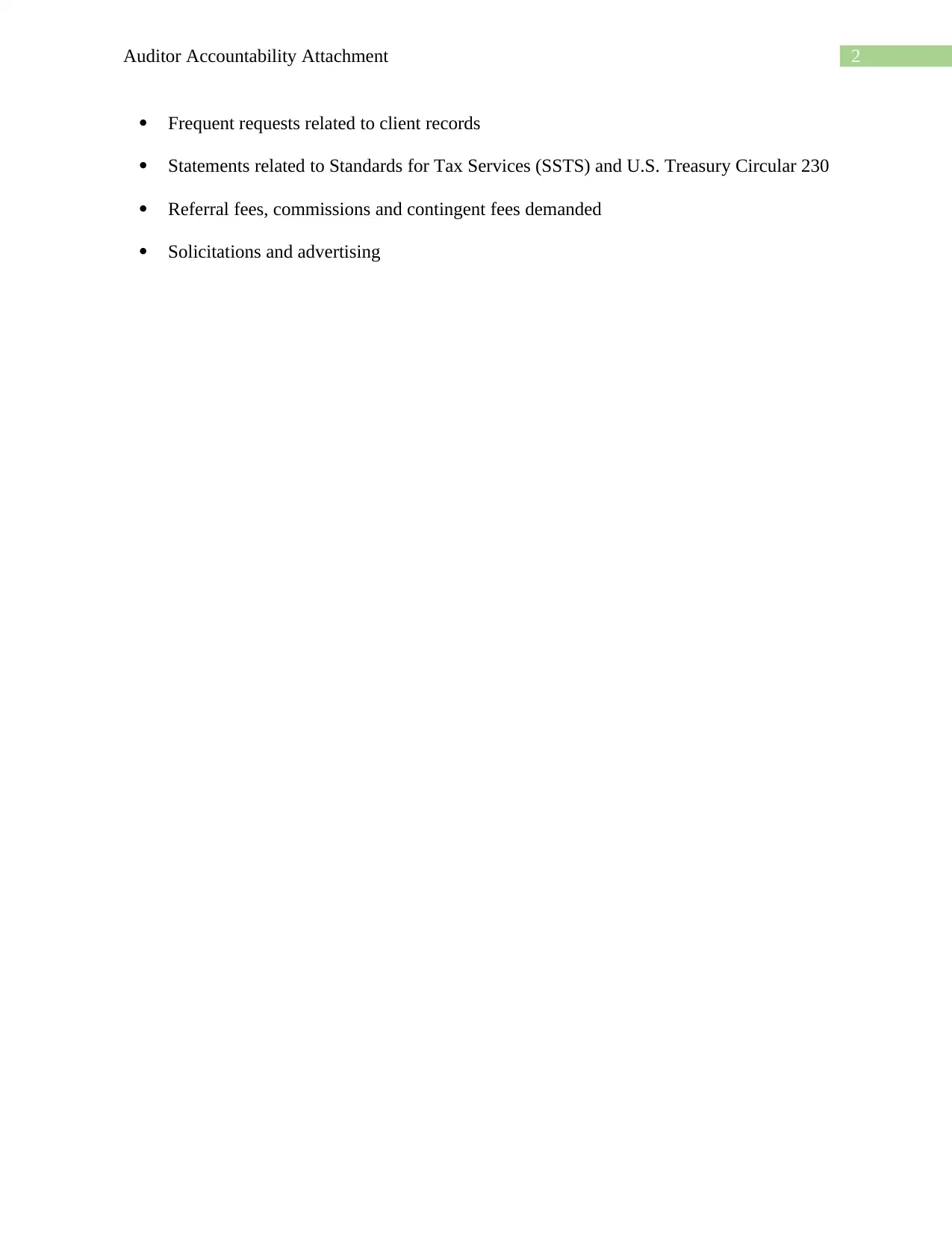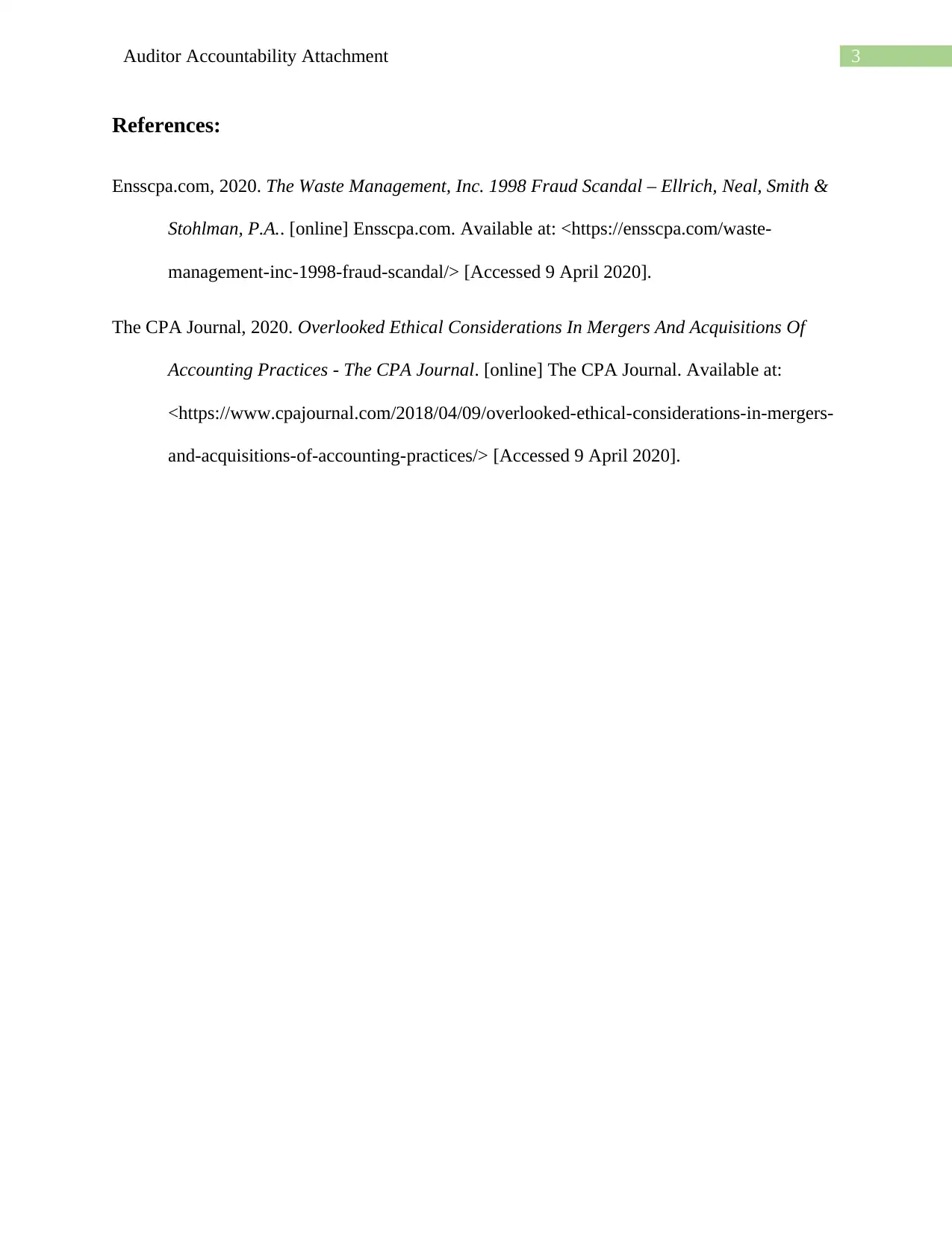Auditor Accountability Report: Ethical Considerations in Auditing
VerifiedAdded on 2022/09/15
|4
|393
|21
Report
AI Summary
This report delves into the critical topic of auditor accountability, examining the ethical dimensions and regulatory frameworks that govern the auditing profession. The analysis begins with a case study of the Waste Management scandal of 1998, highlighting the fraudulent financial reporting and the role of external auditors in the manipulation of financial statements. The report emphasizes the importance of adherence to Generally Accepted Accounting Principles (GAAP) and the consequences of non-compliance, including the sanctions imposed by regulatory bodies like the Public Company Accounting Oversight Board (PCAOB). It further explores the responsibilities of both CPA and non-CPA firms in maintaining ethical standards, and the challenges arising from mergers and acquisitions within the accounting sector, particularly concerning objectivity, independence, conflicts of interest, and confidentiality. The report also addresses ethical considerations related to client records, tax services, referral fees, and advertising, offering a comprehensive overview of the ethical landscape in auditing and financial reporting.
1 out of 4






![[object Object]](/_next/static/media/star-bottom.7253800d.svg)